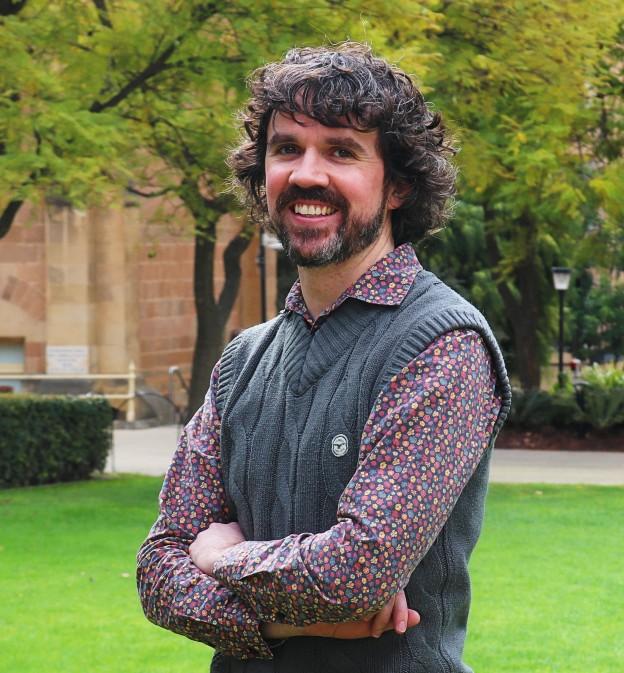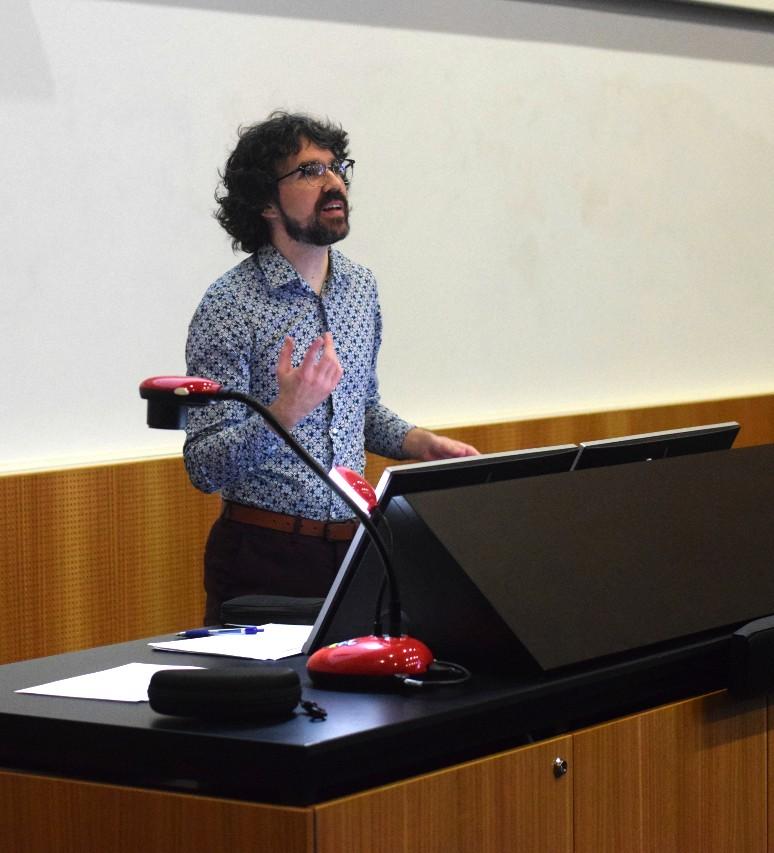This is how I teach
This month we spoke to Dr Mark Dodd, Senior Lecturer with the School of Economics in the Faculty of Professions. A member of the Adelaide Education Academy (AEA) Executive Committee, Mark is a Senior Fellow of the Higher Education Academy (UK) and a Fellow of the Higher Education Research and Development Society of Australasia.

What do you like most about teaching in your discipline?
Economics is one of those things, that for many people, is something on the periphery of their knowledge. Many people for example, hear things here or there on the news about the RBA changing the interest rates, without knowing much about why, what it really means to them and how it all works. I enjoy helping students connect the dots and understand more deeply about things they had only cursory knowledge of before. Getting them to have those “a-ha!” discovery moments, or realising that something about economics isn’t quite what they originally thought.
How would you describe your approach to teaching/your teaching philosophy?
I have always thought it was of great importance to be clear and open with students about what we want from them, and how they can get there. Learning and Teaching literature has demonstrated that an internal focus on control and increased self-efficacy are important contributors to student motivation and engagement. These days with less face-to-face contact and more online interaction, encouraging this engagement is more important than ever.
Another key pillar of my practice is to provide many small, low-stakes assessment tasks throughout the course, that are more formative in nature, rather than just a huge exam or assignment. I arrange as many opportunities as possible for students to attempt small tasks which test their knowledge and skills, and then provide immediate or prompt feedback. In this way I support their learning and give solid guidance on how they can improve.
Ensuring that students feel they have authentic tasks that allow them to uniquely showcase and test their current understanding, and that they can see how feedback will help them learn, is also very important in terms encouraging academic integrity. If students feel they just have to ‘pass the test’, they may be more likely to consider shortcuts. But if they fully appreciate that a major benefit to the assessment is the feedback and learning loop, and don’t feel pressured to know everything from the start, they are more likely to give an authentic effort.

What is your favourite way to use technology to enhance learning?
Technology provides great opportunities for different types of interaction and engagement than what can be achieved in class. Most recently I have had great success with the use of graded discussion boards to engender a level of class discussion and interaction above and beyond what I have usually achieved in face-to-face classes.
Some students who lack confidence with their English language ability, or who are shy, can struggle to speak in class when put on the spot. But an asynchronous written format can give them more time to confidently convey their thoughts. I have used discussion boards in a variety of ways for many years. But it was only recently, post-COVID when I used clear requirements and grading rubrics to really incentivise students to consider these discussions as an important part of the course activity and participation.
Importantly, I made sure that the assessment criteria incentivised students to really discuss and interact with one another. And these discussions were an important way for the mixed mode cohort to interact with one another, irrespective of whether they were face-to-face or online students. Simple aspects such as having a required personal introduction in the first week, and requiring students to include a profile picture in MyUni that would always come up when they posted, were also important in making the class feel cohesive and known to one another. I was surprised to find that well-constructed text discussions really became the heart of the class interaction in my courses even more so than the more “high-tech” synchronous activities available in Zoom meetings such as breakout rooms and embedded quizzing.
How does you teaching help prepare students for their future?
As a discipline often studied within other more generalised degrees, many of my students won’t go on to become economists. So what I want them to leave my course with is something real and tangible in terms of understanding of the world, whether that has some direct professional application in the future, or maybe just helps them to understand parts of the news better, or to engage in conversation at a dinner party one day.
In my teaching I try to get students to focus on real-world issues as much as possible, through open-ended tasks with no single ‘correct answer’, encouraging them to develop their ability to use the tools of economics, and the way that economists communicate, to build their own knowledge and skills. The future is then wide open in terms of how they can find unique and interesting ways to use these skills – and I look forward to seeing what the next generation does with them!
